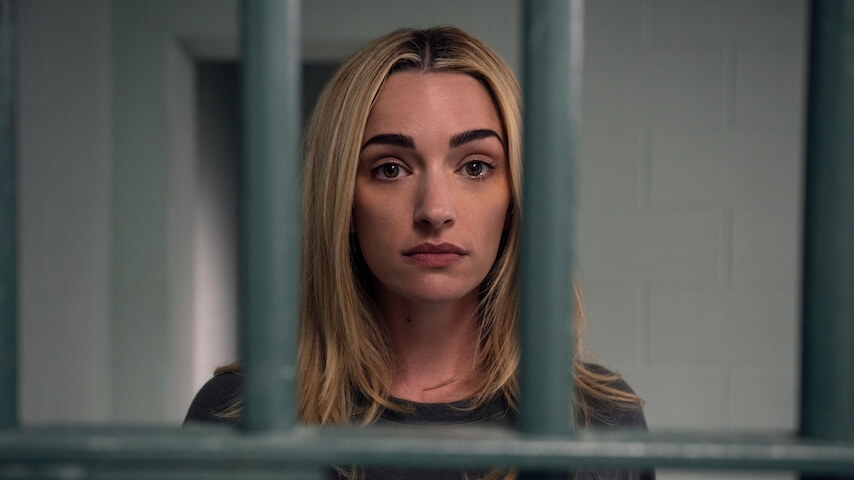Ginny & Georgia's biggest crime is its failure to titillate
The Netflix show returns with more Miller messiness and a murder trial.
Photo: Amanda Matlovich/Netflix
The Southern peach has officially spoiled. Since we last encountered her in the soapy season-two finale of Netflix’s Ginny & Georgia, titular matriarch Georgia Miller (Brianne Howey) has gone from being the blushing bride in Cinderella blue—freshly wed to the clean-cut, strong-jawed mayor of small-town Wellsbury, Massachusetts—to a new alter ego entirely: the Mayoress Murderess. (Yes, it should be the Murderous Mayoress—and yes, that will likely bug you for all ten hour-long episodes of this new season.)
Going into the latest round of Sarah Lampert’s mother-daughter murder-dramedy, Georgia has been formally arrested and faces a life sentence sans parole for the mysterious death (a.k.a. mercy killing) of Tom Fuller, the terminally ill husband of her frenemy Cynthia (Sabrina Grdevich). Georgia’s mid-wedding incarceration and ongoing murder trial sends shock waves through Wellsbury, where Miller’s mile-wide smile, doe eyes, and molasses-thick Alabama drawl have heretofore hidden the fact that the single mom has caused the deaths of three men.
But her actions reverberate even more violently among her immediate family. Georgia’s hubby Mayor Paul (Friday Night Lights‘ Scott Porter) is rightfully concerned that his new bride is a serial killer and that all of her Mayoress Murderess publicity will negatively affect his political career. Teen daughter/title partner Ginny (Antonia Gentry) is dodging hallway gossip and snapping rubber bands against her wrist to avoid self-harm. And younger bro Austin (Diesel La Torraca, whose onscreen growth spurt is an immediate signifier than it’s been two-and-a-half years since the previous season) is so haunted by the memory of his mother smothering a man to death that he copes by pouring cups of coffee over classmates’ heads. Despite the frequent Gilmore Girls comparisons, Stars Hollow this most certainly ain’t.
However, given that the legal pulp here doesn’t really get going until the season’s back-half—Howey’s Georgia is sidelined for much of the start, desperately staving off cabin fever by bedazzling her ankle monitor and binocular-spying on her neighbors—that does leave room for some Gilmoresque adolescent trials for the younger Miller girl. And in a very Rory move, Ginny starts canoodling with a snarky guy from her poetry class—named Wolfe (Ty Doran), adding to the series’ growing list of absurdly-named teens (see: Silver)—while struggling with her feelings for amicable ex Marcus Baker (Felix Mallard). She is also navigating shifting friendship dynamics with the other MANG girls (Sara Waisglass’ Max, Katie Douglas’ Abby, and Chelsea Clark’s Norah), contending with her dad’s (Nathan Mitchell) new relationship, and trying to determine exactly how much she is like—or wants to be like—her mother.
 Keep scrolling for more great stories.
Keep scrolling for more great stories.
